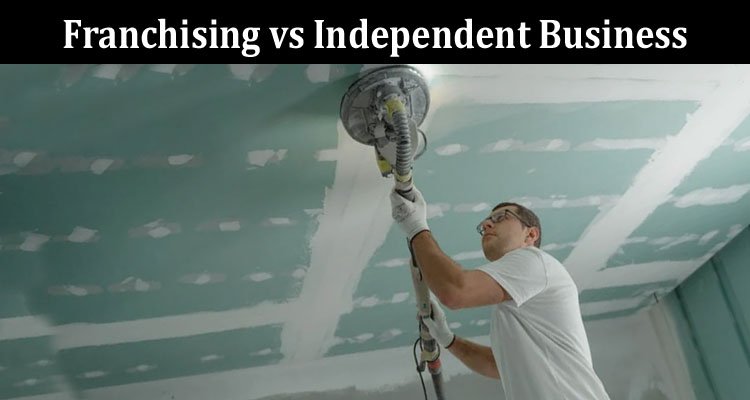When it comes to stepping into the entrepreneurial world, one of the most significant decisions is choosing between starting an independent business or opting for a franchise. Both paths offer unique advantages and challenges, and understanding these can be crucial in making an informed decision that aligns with your goals, resources, and risk tolerance.
Whether you’re considering opening a brand-new fast-food chain or joining the ranks of an already-established restoration franchise, this comprehensive guide will explore the pros and cons of each model to help aspiring entrepreneurs navigate this critical choice.
Initial Investment
Franchises often require a substantial initial investment, which includes franchise fees, startup costs, and royalties. However, this investment comes with a ready-to-implement business model and brand recognition, which can be invaluable for quick market penetration.
Starting an independent business usually requires a lower initial investment. The lack of franchise fees and royalties can be a significant advantage. However, you’ll need to invest time and resources in building your brand and business structure from scratch.
Brand Recognition
One of the most significant advantages of a franchise is brand recognition. Customers are more likely to patronize a business they’re familiar with, which can lead to quicker sales and growth.
Building a brand from the ground up is challenging and time-consuming. It requires substantial marketing efforts and consistency in quality and service to establish recognition and loyalty.
Creative Control
Franchises have stringent guidelines and policies to ensure brand consistency. This can limit your creative control over certain aspects of the business, including marketing strategies, interior design, and menu or service offerings.
As an independent business owner, you have complete creative control. This freedom allows for innovation and quick adaptation to market changes or customer preferences.
Support and Training
Franchisors typically offer extensive training and ongoing support. This can include marketing assistance, operational guidelines, and even help with site selection and design, which is particularly beneficial for first-time business owners.
Independent business owners must typically seek out their training and support. While this offers more freedom, it also means facing the steep entrepreneurship learning curve alone.
Risk and Stability
Franchises often come with a proven business model, which can reduce the risk of failure. The stability of a support system can be reassuring, especially for new entrepreneurs. Starting an independent business is often riskier due to the lack of established systems and brand recognition. However, this path can lead to higher rewards if the business succeeds.
Market Saturation and Competition
Market saturation can sometimes be a concern for franchises, especially in popular sectors. Researching and understanding market demand and competition is essential before investing.
As an independent business owner, you can identify and fill niche markets, offering unique products or services that set you apart from competitors.
Flexibility and Scalability
Franchises may have less flexibility in scaling up or down based on market conditions. Expansion often requires purchasing additional franchises, which can be costly. Independent businesses can be more flexible in scaling, allowing owners to adjust their business model, size, and operations more freely based on market demands.
Operational Restrictions
Franchisees must adhere to the franchisor’s operational guidelines and policies, which can include restrictions on product sourcing, pricing, and promotional activities. Independent entrepreneurs can make all operational decisions, from suppliers to pricing strategies, allowing for tailored approaches to local market conditions.
Profit Potential
While franchises can offer more immediate profitability due to brand recognition, the ongoing royalties and fees can reduce overall profit margins. Independent businesses have the potential for higher profit margins as they don’t incur franchise fees or royalties. However, profitability heavily depends on the success of the business model and market reception.
Exit Strategy
Selling a franchise can be more straightforward due to the established brand and support systems. However, restrictions or fees may be associated with transferring the franchise agreement. Independent businesses can offer more flexibility in exit strategies, but the value heavily depends on the brand and customer base built by the owner.
Conclusion
Choosing between a franchise and an independent business is a decision that hinges on the above (and probably more) factors. While franchises offer a plug-and-play model with support systems and brand recognition, they come with higher initial costs and operational restrictions. On the other hand, independent businesses provide more freedom and potential for innovation but require significant effort in brand building and bear higher risks. Aspiring entrepreneurs should weigh these factors carefully to decide which path aligns best with goals and resources.


